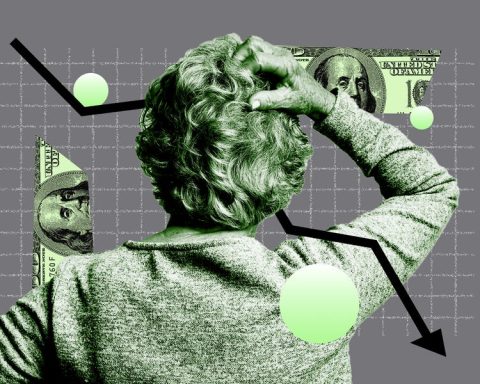The New York Federal Reserve Reports Alarming Increase in Student-Loan Delinquencies
There is an alarming trend among student-loan borrowers, as a significant number are falling behind on their payments, leading to an increased risk of wage garnishment and the seizure of federal benefits. A recent quarterly report on household debt and credit released by the New York Federal Reserve highlights this growing issue.
According to new data, 0.8% of student-loan borrowers were classified as seriously delinquent—defined as being at least 90 days overdue—in the first quarter of 2024. By the first quarter of 2025, this figure skyrocketed to 8.04%, raising red flags among financial experts.
Researchers from the New York Fed explained during a press briefing on Tuesday that this uptick in delinquencies was somewhat expected due to the expiration of the moratorium on collections that had been in place for five years. During this period, various consequences of defaulting, including impacts on credit scores, were put on hold. With the resumption of credit reporting in October 2024, the rise in delinquencies was anticipated, although the magnitude of the increase was unexpected.
The report also indicated that many borrowers who recently fell behind on payments—who had been current as of the last quarter of 2025 but had at least one loan overdue by 90 days in early 2025—experienced declines in their credit scores. Notably, 2.2 million borrowers reported drops exceeding 100 points, with around 1 million facing a reduction of 150 points or more.
As outlined in the blog post from the New York Fed concerning student-loan delinquencies, these steep declines in credit scores could lead to higher borrowing costs or severely restrict access to credit for essential needs like mortgages and auto loans.
While the increase in delinquencies is stark following a lengthy pause in payments, the New York Fed observed that the current rates are reverting to the pre-pandemic norms, with over 10 percent of balances representing approximately six million borrowers either overdue or in default.
The blog emphasized the serious consequences of student loan delinquency, indicating that the ramifications could be severe. Recently, President Donald Trump initiated the process for restarting collections on defaulted student loans, notifying nearly 200,000 borrowers that they could face garnishment of their federal benefits within 30 days if they do not resume payments.
Researchers at the New York Fed noted there is still a window of opportunity for borrowers who contributed to this surge in delinquency to recover their good standing. They suggested many may have been unaware that payment obligations and credit reporting had recommenced and could potentially afford payments if they had prior knowledge.
However, some borrowers in default have expressed awareness of the resumed credit reporting, yet remain unable to make payments, anticipating garnishment of federal benefits and possibly wages. “They’re going to have to come and take it from me, and then I’ve got to figure out somehow how to live past that point,” one defaulted borrower remarked.







